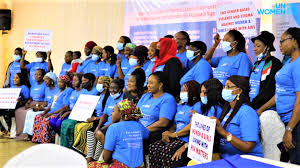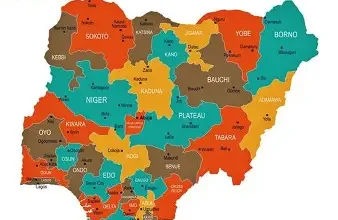Lead
UN Women urges support for women living with HIV in Nigeria

The Acting Deputy Country Representative to UN Women Nigeria, Mrs. Patience Ekeoba, has highlighted the need to prioritise domestic funding from government institutions, the organised private sector, foundations, and charity organisations to support the cause of women living with HIV.
Mrs. Ekeoba said this when she led the
Association of Women Living with HIV in Nigeria (ASWHAN), Delta chapter on an advocacy visit to the State Commissioner for Women Affairs, Community and Social Development on Friday in Asaba.
Ekeoba emphasised that UN Women would continue to support the Association of Women Living with HIV in Nigeria (ASWHAN) in promoting the rights and empowerment of women living with HIV.
She also noted that the UN Women has been working with ASWHAN for eight years, by providing technical and institutional support to build their capacities and promote their rights.
She disclosed that the organisation has developed a toolkit and advocacy kit to help women living with HIV understand their rights and advocate for themselves.
Ekeoba noted that the advocacy training organised for states in the Southern part of country, was part of a larger effort to support women living with HIV in Nigeria, including the development of a Community-Led Advocacy Toolkit.
‘The training, supported by UN Women, brought together representatives from 18 states in Southern Nigeria to enhance their advocacy skills and push for better services for women living with HIV.
She said that at the end of the training, participants would develop state-specific advocacy action plans with clearly identified targets, timelines, and expected outcomes.
”The training aims to enhance the knowledge and skills of participants in articulating and carrying out effective advocacy for women living with HIV, ” she said.
The News Agency of Nigeria (NAN) reports that earlier, ASWHAN demanded for social and programmatic inclusion, legal and policy advocacy, economic empowerment, and support for children and vulnerable groups.
They also requested for inclusion in government empowerment programs, health insurance schemes, and decision-making processes.
They also demanded for economic empowerment initiatives, job creation, and scholarship opportunities for children living with disabilities.
In her response, the commissioner emphasised the importance of advocacy in empowering women living with HIV.
According to her, advocacy is just as crucial as gifts, grants, and empowerment.
She noted that without knowledge and information, one may not know how to utilize the resources available to them.
“When you don’t have information, you will not know how to use the gift, grants and empowerment that you have,” she said.
Ajudua stressed that knowing one’s HIV status was vital in taking control of one’s life.
“When you know your status, you will know how to arrange yourself and to do things right,” she said.
She commended the group of women living with HIV for being proud survivors of the disease.
“I must say, you don’t look it,” she added, emphasising that HIV could affect anyone, regardless of their background or circumstances.
The Commissioner emphasised that HIV is not something that anyone invites into their life.
“Nobody invites HIV, sometimes it is from birth, sometimes by contacts without even knowing it,” she said.
She therefore stressed that there should be no blame or stigma attached to being infected with the disease. Instead, the focus should be on taking action to manage the condition.
“The most important thing is that you have to know your status and take your drugs,” she advised. “When you take your drugs committedly and constantly, it wipes the HIV.”
Princess Ajudua commended the group for their advocacy efforts, noting that her ministry was committed to supporting persons living with HIV.
She assured the group that their requests would be looked into and that her ministry was doing a lot to support them.
NAN also reports that the group paid advocacy visit on State Executive Secretary of Delta State Action of Committee on HIV/AID, Dr Rudolf Hobson.
NAN



